Publications
Articles, publications, books, tools and multimedia features from the U.S. Institute of Peace provide the latest news, analysis, research findings, practitioner guides and reports, all related to the conflict zones and issues that are at the center of the Institute’s work to prevent and reduce violent conflict.
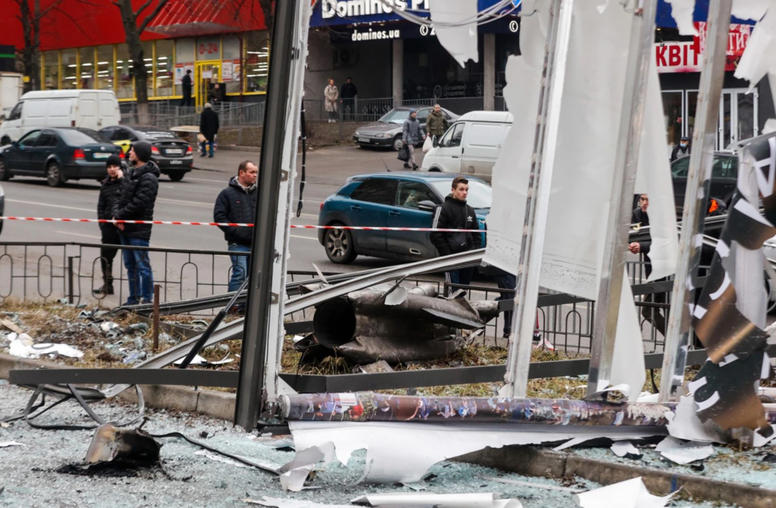
Ukraine: Putin Chooses His ‘Forever War’
Russian President Vladimir Putin’s massive, unprovoked invasion of Ukraine has received the immediate response promised by the United States and allied democracies: economic sanctions and solid support for Ukraine’s self-defense. While deterrence failed to divert Putin from war, its escalation remains a vital tool for the community of democracies to support Ukraine. The choice continues to be Putin’s—to stand down or to dive into an abyss of Europe’s most destructive war in eight decades.
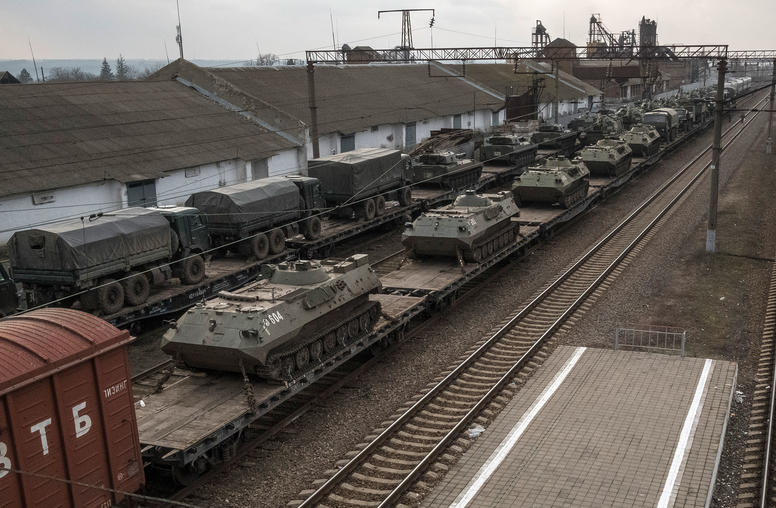
How Putin’s Invasion of Ukraine Affects the Rest of Russian Foreign Policy
USIP’s Heather Ashby, Jude Mutah, Andrew Scobell and Mona Yacoubian examine how the invasion of Ukraine might have shifted Moscow’s decision-making in other regions — such as Syria, the Sahel and China.

Elizabeth Murray on Peacebuilding and the Global Disability Summit
The pandemic has “really laid bare some inequalities” facing those with disabilities, says USIP’s Elizabeth Murray. But last week’s Global Disability Summit offered “an opportunity for disability inclusion to be integrated across U.S. foreign policy,” particularly when it comes to peacebuilding programs.
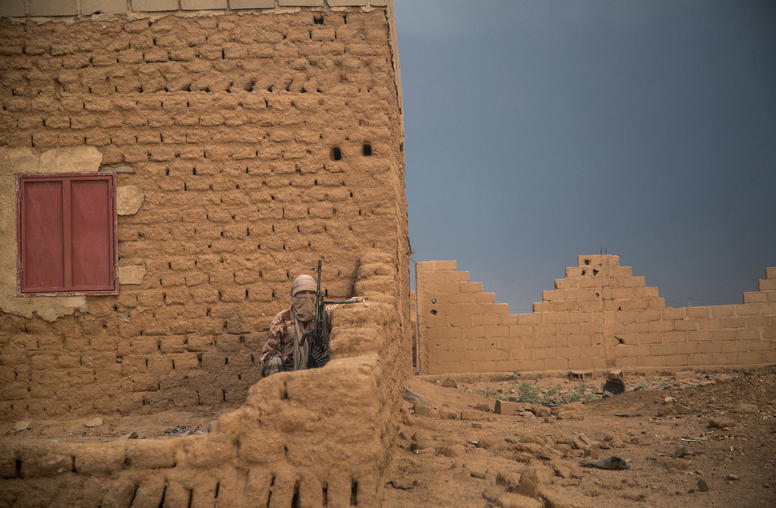
Community-Based Armed Groups: A Problem or Solution?
The RESOLVE Network’s multiyear research on Community-Based Armed Groups (CBAGs) has established critical findings for the international community on how to engage, manage and transform violent actors in conflict-affected states. While mitigation efforts tend to target anti-state extremist organizations, understanding the behavior of CBAGs is essential for comprehending complex conflict ecosystems and reassessing approaches toward peace and stability.
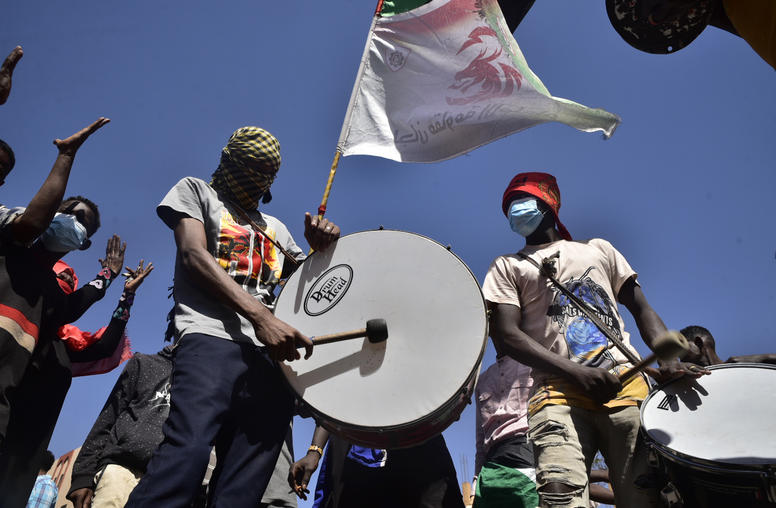
Countering Coups: How to Help Rebuild Democratic Rule
The past year’s surge in coups around Africa’s greater Sahel region highlights the need for the United States, other democracies and African governments to improve past practices that often have been ineffective in preventing armed seizures of power and in reversing them when they occur. Many Sahel countries have suffered repeated coups—a warning that we need to strengthen the ways that we shape our efforts at restoring democracy. USIP experts suggest that these transitions must become periods for broad, national dialogues to set agendas for change that can make strengthen democracy and interrupt cycles of failed governance.
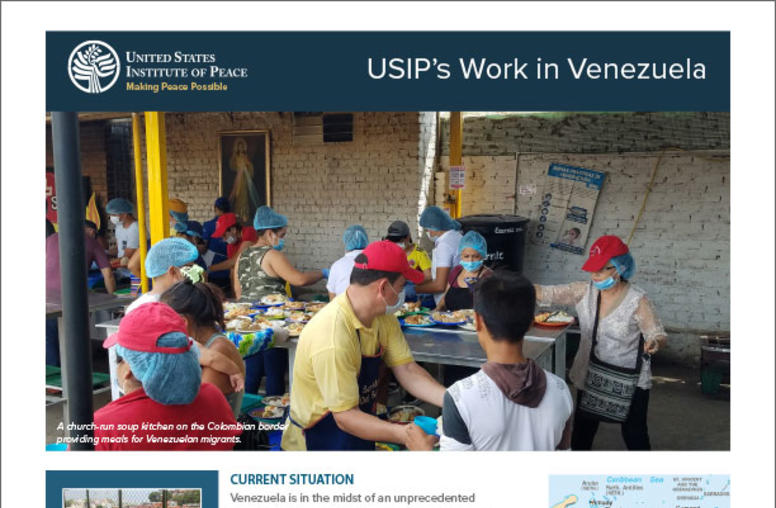
The Current Situation in Venezuela
Venezuela is in the midst of an unprecedented social and humanitarian collapse—the result of bad economic policies and political conflict—that has led to food insecurity, the second largest migration crisis in the world, and regional instability. The international community has responded with pressure against the regime coupled with support for elements of the opposition, but to date it has been unsuccessful in bringing about a positive change.
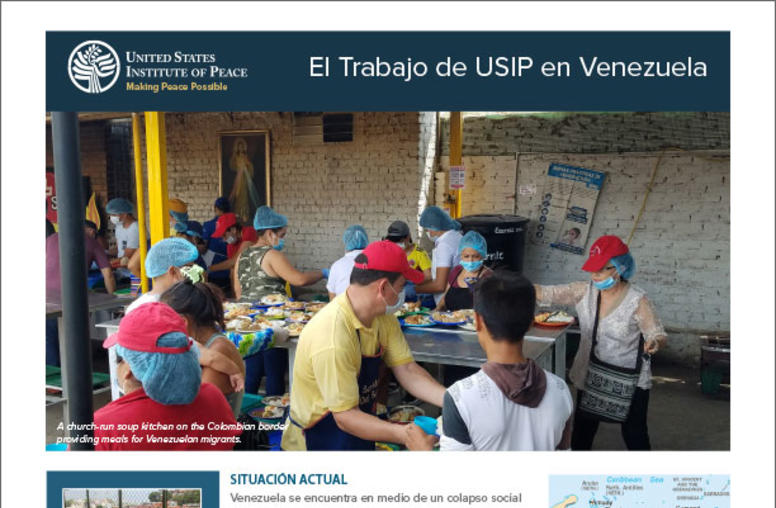
The Current Situation in Venezuela (Spanish)
Venezuela se encuentra en medio de un colapso social y humanitario sin precedentes – el resultado de malas políticas económicas y un conflicto político – que han resultado en inseguridad alimentaria, la segunda crisis migratoria más grande del mundo y inestabilidad regional. La comunidad internacional ha respondido presionando al régimen y apoyando a un gobierno dirigido por la oposición, que hasta la fecha no ha logrado un cambio positivo.
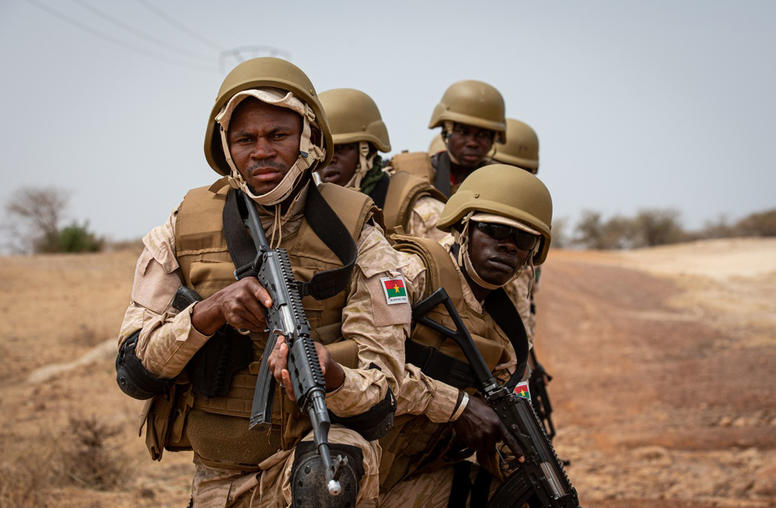
Countering Coups: How to Prevent Armed Seizures of Power
Armies have seized power in five states of the greater Sahel over nine months, cementing this African region as the most pronounced center of a global crisis. The Sahel’s military coups d’état are an acute symptom of poor and authoritarian governance that is breeding extremism and transnational criminality, igniting violence and undermining efforts to build democracies. These crises highlight widening security risks for the Sahel’s 135 million people and ultimately for Europe and the United States. Congress has begun urgently needed policy changes that analysts say should now be accelerated to prevent further coups and to buttress stability and democracy.
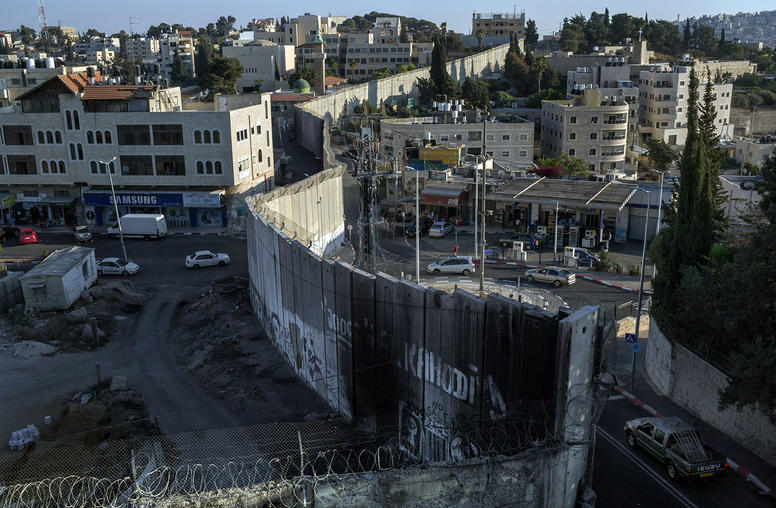
The Israeli-Palestinian Conflict: The Danger of ‘No Solution’ Messaging
Israeli Prime Minister Naftali Bennett has made it clear that he has no interest in reviving the Israeli-Palestinian peace process. In a recent interview, he affirmed his longstanding position that he “opposes a Palestinian state and will not allow talks on the line of a Palestinian state.” Echoing Bennett, Israel’s more moderate Alternate Prime Minister Yair Lapid — set to take over in August 2023 — says he, too, will not seek peace talks once he takes office, despite his stated support for a two-state solution.
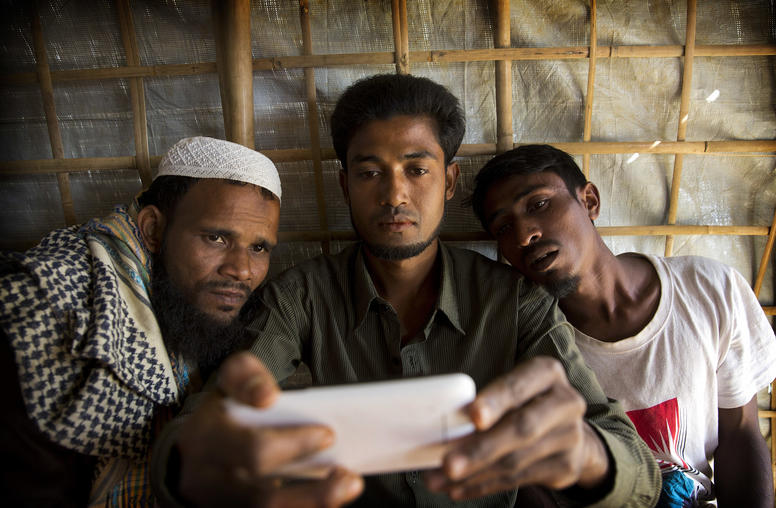
La acción no violenta en la era del autoritarismo digital: Dificultades e innovaciones
A fines de la década de 2000 y principios de 2010, los movimientos de acción no violenta utilizaron las redes sociales y otras herramientas digitales para organizar levantamientos a favor de la democracia que tomaron por sorpresa a los regímenes. Esos eufóricos comienzos han dado paso a la represión digital, las restricciones de libertades en línea y el retroceso democrático a medida que los regímenes autoritarios aprovechan las nuevas tecnologías para vigilar a la oposición y sembrar desinformación. Este informe documenta cómo los activistas no violentos se están adaptando a la represión digital y sugiere formas en que los Estados Unidos y sus aliados pueden ralentizar el ritmo de la innovación autocrática en el uso de estas tecnologías.